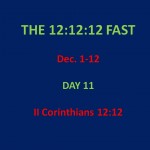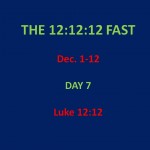 When the angels had returned to heaven, the shepherds said to each other, “Let’s go to Bethlehem! Let’s see this thing that has happened, which the Lord has told us about.” (Luke 2:15)
When the angels had returned to heaven, the shepherds said to each other, “Let’s go to Bethlehem! Let’s see this thing that has happened, which the Lord has told us about.” (Luke 2:15)
When you hear the word “shepherd”, do you think of Jesus “The Good Shepherd” right away?
Or do you recall the words of David: “The Lord is my Shepherd?” (Psalm 23:1)
Perhaps you visualize David, the young shepherd boy, out in the pastures, leading and feeding his sheep, while breaking out into psalms while taking a break from his chores!
However, in Jesus’ day, shepherds did not evoke positive thoughts from most people.
Jeremias, a scholar who has studied the world into which Jesus came rather exhaustively says: “Most of the time they were dishonest and thieving; they led their herds onto other people’s land and pilfered the produce of the land…Because they were often months at a time without supervision, they were often accused of stealing some of the increase of the flock.”
Consequently, people were warned not to buy wool, milk, or sheep from shepherds on the assumption that it was stolen property.
Shepherds were not allowed to fulfill a judicial office or be admitted in court as witnesses.
A midrash on Psalm 23:2 reads, “There is no more disreputable occupation than that of a shepherd.”
Does this background information help you understand why they were “sore afraid” when they saw the angel?
They would not have associated the appearance of the angel with good news. Anything but.
They were more likely to have anticipated the judgment of God. Bad news! Oh, oh! Now we’re going to pay for our sins!
Yet, God chose them to be the first to hear the good news: “Unto you is born this day in the city of David a Saviour who is Christ the Lord.”
A rather odd choice, wouldn’t you say?
In a way, yes. Yet, in another way, not particularly surprising.
God had a reputation for choosing unsavoury characters such as Jacob, Rahab and Jonah to be key participants in His scheme of salvation.
However, if all the shepherds had done was receive the revelation, would they still be revered as they are today?
What transformed these notorious citizens into noteworthy characters in the Nativity Story?
The key lies in Luke 2:15 and the verses that follow:
“They hurried to the village and found Mary and Joseph. And there was the baby, lying in the manger. After seeing him, the shepherds told everyone what had happened and what the angel had said to them about this child. All who heard the shepherds’ story were astonished.”
They received the revelation and ran with it!
They went past the angelic encounter and ended up encountering Jesus himself!
It was this encounter with Jesus and his parents that transformed them into evangelists who then spread the good news to “everyone.”
Are you sitting on a heavenly vision, an incredible dream, a prophetic word or a destiny declaration that is at least as stunning if not more spectacular than what the shepherds received that night while they were “abiding in the fields?”
The reason the Lord chose you to be the seemingly unworthy recipient of such revelation is very simple.
He wants you to go and see what the Lord has told you about, to activate the vision by acting upon it.
Can the Lord count on you to be one who not just Receives Revelation but also Runs with it?









Follow Us